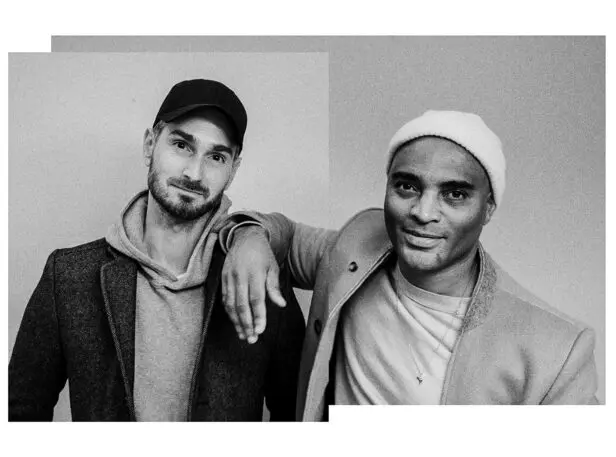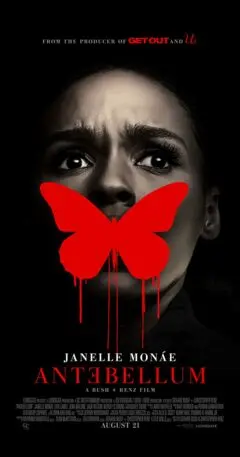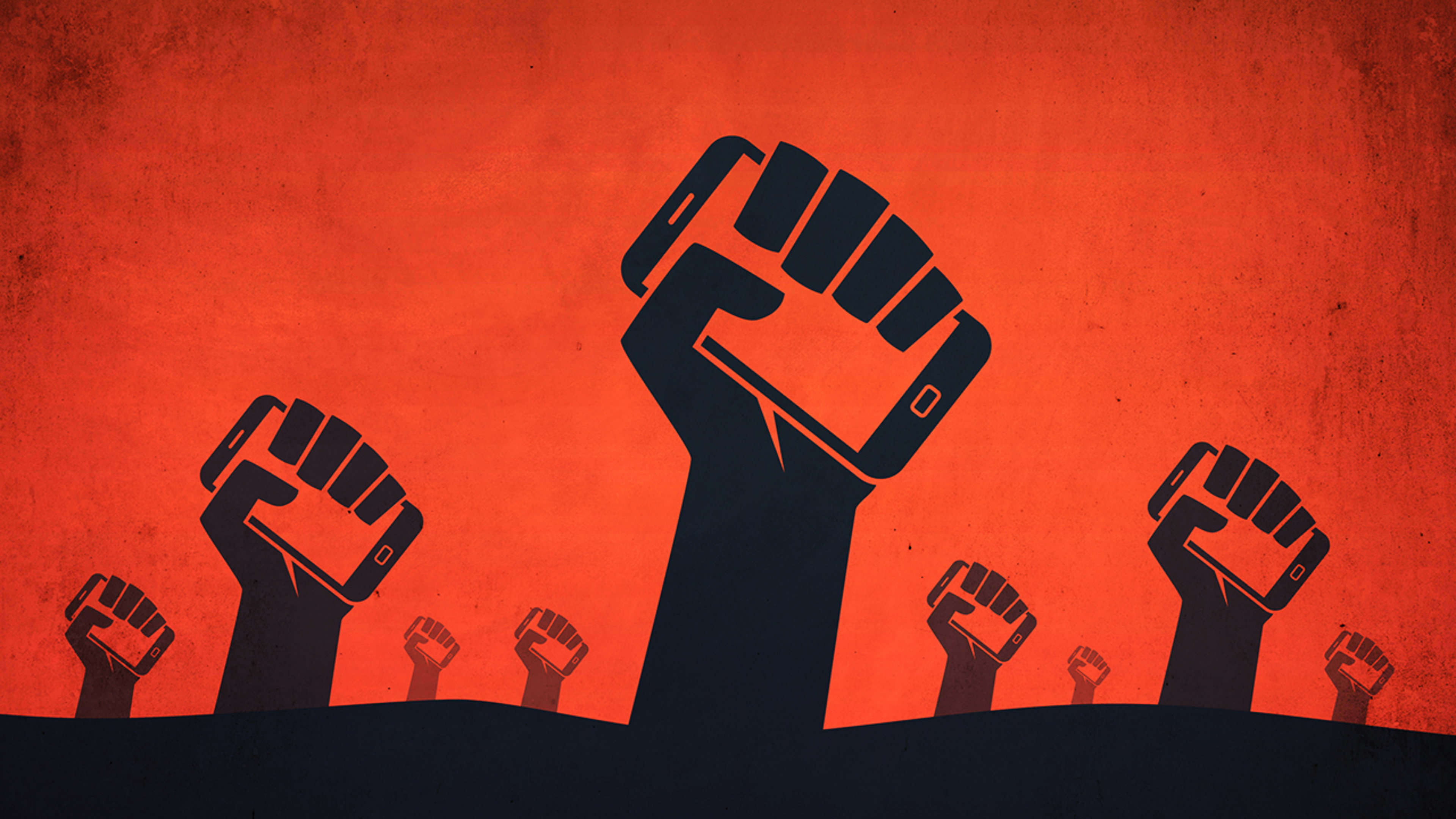On June 13, Lionsgate, the studio behind such films as 3 From Hell and the John Wick and Saw franchises posted an image of a Confederate monument overlaid with Black Lives Matter protest art on the company’s Twitter, Instagram, and Facebook feeds. “The confederate monuments are a daily insult; a reminder that America was built on the backs of stolen bodies and free labor,” reads the text accompanying the image.
Immediately, comments began accumulating. Many of them were not in favor of the image, reflecting how wide a swath of the population Lionsgate’s 5 million followers span, and how divided the political climate is beyond the liberal enclave of the movie industry.
“This page is about movies but ok,” began one rant, which went on to say that “Erasing history is how we repeat it. Which is literally already happening.” Another commenter wrote that “most of the monuments aren’t even racist.” And then there was the inevitable: “First of all stay out of politics . . . .”
Lionsgate marketing wasn’t actually behind the politically-charged post, nor the two dozen other social justice-fueled images and videos that went up on the company’s feeds over the next week.

The film is the first feature for Bush and Renz, but the duo have been social justice advocates and artists for years now, having worked on campaigns with the MLK Memorial Foundation and Amnesty International. They also directed the police brutality PSA Against the Wall, which was produced by Harry Belafonte.
So when the Black Lives Matter movement began sweeping through Hollywood earlier this month, Lionsgate turned to the filmmakers to craft the company’s online messaging.

The result is a series of posts—the last went up on Juneteenth—that unflinchingly demand viewers’ attention through moving and often beautiful art whose ultimate goal is not just to raise awareness but to educate. There are short videos of James Baldwin, Toni Morrison, and Nina Simone discussing racism; a vocal performance by Jade Novah (who’s featured on the Antebellum soundtrack) giving a haunting rendition of “A Change Is Gonna Come”; and artwork honoring Breonna Taylor, George Floyd, and Ahmaud Arbery—three of the Black lives that have been lost due to violent aggression by white men.
The post in honor of Taylor shows a brightly colored illustration of the African American medical worker, who was fatally shot by police in Louisville, Kentucky, after they stormed into her apartment this past March. In the drawing, Taylor smiles serenely with her eyes closed under the words “Justice For Breonna.” Swiping right leads to a short video that explains Taylor’s story.
“The posts are a kind of Cliff’s Notes for the messages,” Renz says. “We then provide more information through links and videos.
“We want to educate. The main goal for this is for people who don’t know what happened to go in” and learn more. “So many people are speaking about [these issues] on social media, but a large percentage of the population doesn’t know who she is, so we thought it was important to highlight that.”
The extent of their educating was at times surprising—the filmmakers said that the Baldwin post elicited comments from people who had no idea who the iconic Black novelist was.
Toni Morrison also drew blanks from some followers.
Reactions to the posts were all over the map, reflecting what the filmmakers say felt like an even split between conservative and liberal followers. Racist, homophobic, and anti-Semitic comments flared up, but there was also a flood of reactions from people who expressed their gratitude and appreciation for the posts, and who seemed to sincerely want to learn more.
“Lionsgate is a publicly-traded, big, mini-major studio in Hollywood, so they have a lot of different audiences,” says Bush. “That’s why we thought this was so courageous of them. It’s not like they’re a studio like A24 that’s very niche and does a specific thing. They represent a lot of different viewpoints.
“The reaction and response, generally speaking, was overwhelmingly positive in that, even if you didn’t necessarily agree (with the message), people were having conversations amongst themselves and debating themselves about this particular moment.”
“We have a healthy respect for the potency of power within story, and that’s macro or micro,” he continues. “Social media should be no different. So we wanted to give short-form, digestible content that was evocative and provocative in its nature.”
Bush and Renz elaborated on some of their most popular posts, explaining why they chose the image or video, and how the art resonated—or, in some cases, enraged.
Confederate monument
Renz: “That was posted on Day 2. It’s a Robert E. Lee monument, and we posted BLM imagery as well as a poem to go along with it. We just wanted to dive right in and serve it up in as beautiful a way as possible. Especially on Instagram—what’s going to have people stop their scroll and read more?”
A Black woman riding a horse with a Black Lives Matter sign
Bush: “I wrote a poem about the Black woman, and we had this Black woman seated on a horse. There was a visceral response to this. There were a lot of comments about ‘All Lives Matter’ that indicated that a bigger conversation, an educational conversation, needs to happen. We did not think originally that this would be a relatively benign post. That wasn’t our hope. Our ardent hope was that it would generate conversation. . . . But what we got is that the celebration of Black women in this country still makes a certain section of the country really uncomfortable. They seem to have a very specific issue with the celebration of Black women.”
Painting of George Floyd as an infant being held by his mother
Renz: “We wanted to highlight a few artists we worked with on the Amnesty International documentary (Canvases of Courage) and whom we’ve been doing work with for a long time, highlighting social justice. We went to Sophia Dawson, who’s been doing a series of these Black men killed by the police, painting them as infants in the arms of their mothers. We thought they were quite powerful, so we shared one of those pieces. They communicate the frustration, but they also pull at the heartstrings and get people to want to dive in and learn more.”
Video of James Baldwin
Bush: “You could pull a hundred James Baldwin clips, but this one was at the conclusion of his life, and the statement he’s making around progress was especially eerie and haunting. Because this is later in his life and progress still hadn’t been achieved. And he said it’s not going to be achieved if we continue at this snail’s pace, this glacial pace. A lot of people that are outside the movement wonder: Why now? Why is that you can’t be patient? But what today’s generation is saying is that we have no more time. We’re out of time. The planet is burning up. There’s a global pandemic. There’s a national pandemic of racism in this country that’s been responsible for stalking Black and brown bodies for 400 years.”
Justice for Breonna art
Renz: “The art and the hashtag (#ArrestTheCopsWhoKilledBreonnaTaylor) are for people who already know what happened. So you start out with that. Then you slide right and we expand on what happened to her through video.”
Juneteenth video of Jade Novah singing “A Change Is Gonna Come”
Bush: “The reason we did that is because Sam Cook sang that song years ago. It’s been over 50 years. And here we are in 2020 and change is still not here. But guess what? When you watch the performance, the way we had her do it—there’s just a black background and her expression is to say that now is the time. It’s simple but gorgeous. Chris and I champion simplicity because to us it’s the ultimate demonstration of sophistication. It is stripping down all the unnecessary parts so that we can get to the core of what we are going to say.”
Recognize your brand’s excellence by applying to this year’s Brands That Matter Awards before the early-rate deadline, May 3.
